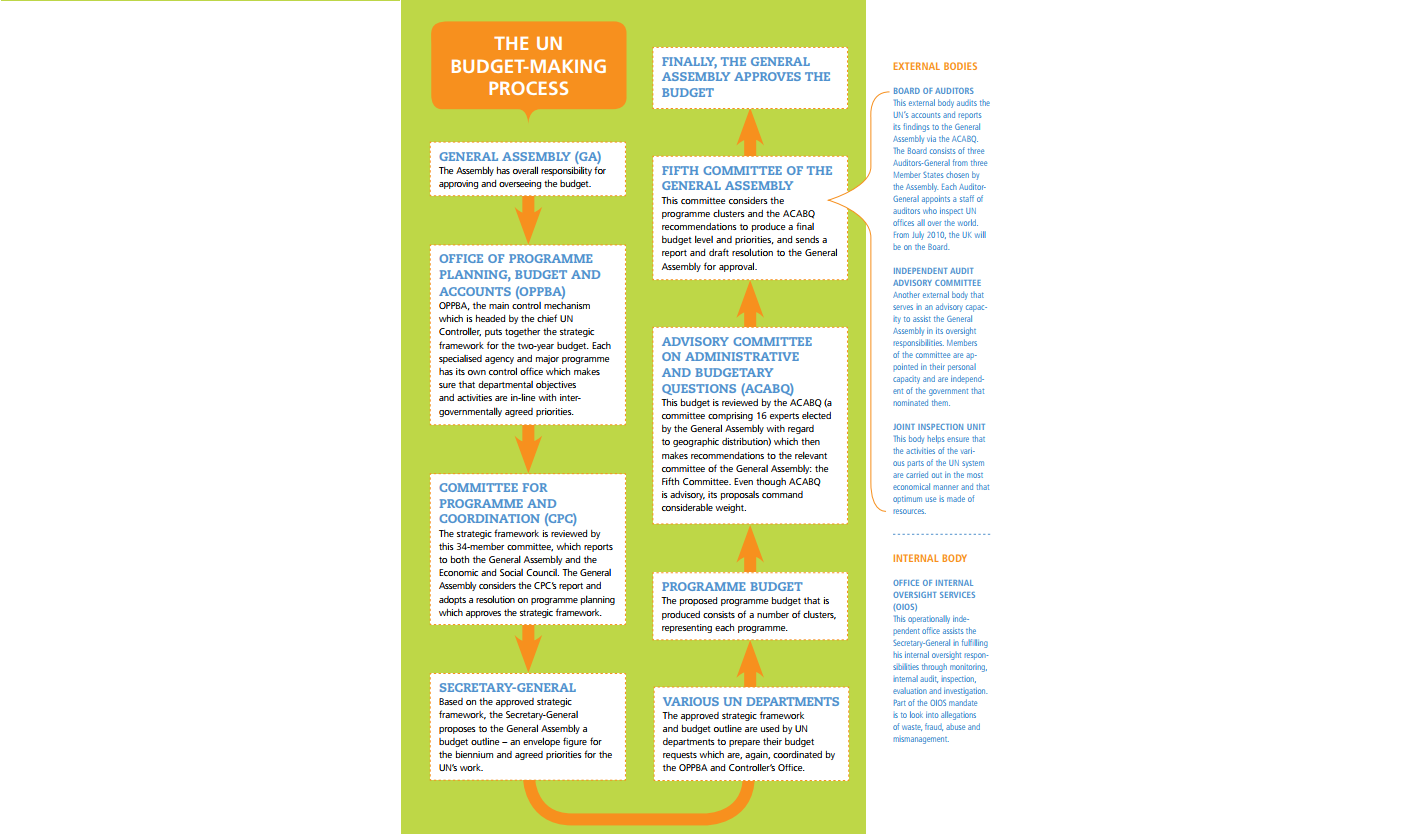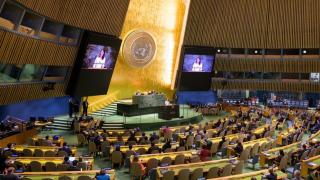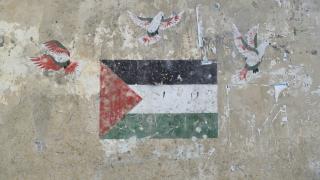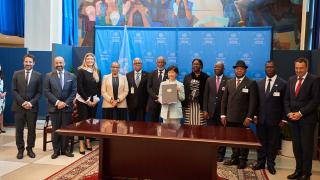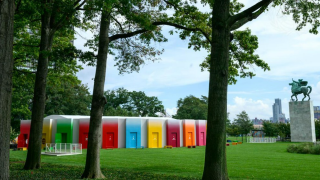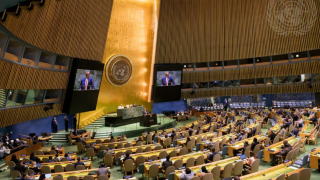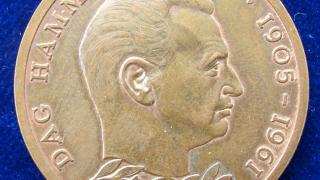
Part of our regular series of background briefings on the UN in the news.
How is the United Nations funded? It is a question that we get asked a lot, and has come up recently as a result of President Trump’s attempts to cut UN budgets and the proportion paid by the United States.
The UN is actually very cheap. The entire UN system - peacekeeping missions, humanitarian programmes, secretariat and staff - costs less per year than Wall Street bonuses. But the perception of an expensive and wasteful organisation persists. Given the highly political nature of UN funding, many member states are keen to perpetuate this myth. At the same time, there are areas of genuine inefficiency that should be tackled.
In this article we answer some basic questions, and address some common misconceptions, about how the UN pays for itself.
Who funds the UN?
There are three main sources of UN funding: assessed contributions, the peacekeeping contributions, and voluntary contributions.
Assessed contributions by UN member states are supposed to fund what is often called the 'regular' UN budget. This is intended to cover core costs arising from the work of the UN's principal organs and main offices, as well as some programme costs. Agreed on a biennial basis, it is currently about $5.4 billion for the years 2016 and 2017.
The amount paid by each member state is calculated according to a precise formula, detailed here, which essentially apportions costs to member states according to their ability to pay. It does this by allocating costs proportionately according to an average of the Gross National Income (GNI) of each state over the past 3 years and 6 years. Adjustments are then made to ensure:
- No country pays less than 0.001% of the total
- No Least Developed Country (LDC) pays more than 0.01% of the total
- No country pays more than 22% of the total (this protects the US which would otherwise be expected to pay a lot more)
- Countries with high levels of debt are able to get a discount by counting an eighth of their debt against the value of their GNI for the purposes of their calculation
- Countries that have a per-capita income that is less than the global average get a discount of up to 80% depending on how far below the average they are (this provides a discount to countries like India and China which have a lot of money but also a lot of people, and so are not as rich as they would otherwise seem)
The peacekeeping contribution raises additional funds - $7.9 billion for the period July 2016 to June 2017 - towards the cost of UN peacekeeping missions. It is calculated according to another formula, which is also based upon ability to pay, but is more pro-active in protecting poorer countries from costs.
This formula puts member states into 10 levels (A-J):
- Level A contains the five permanent members of the UN Security Council (P5)
- Levels B-J are split up according to the per-capita Gross National Product (GNP) of the country - the poorer the country the lower the level
- For countries on level B, the formula is essentially identical to the formula above, they pay the same amount of the peacekeeping contribution as they pay towards the assessed contribution
- Countries on levels C-J pay less, receiving a discount of between 7.5% and 90% depending on their level, in reflection of their reduced ability to pay
- The P5 then have to pay extra to cover the shortfall created by the discount offered to levels C-J. This is because permanent members of the Security Council are responsible for authorising peacekeeping missions
These two types of contribution are compulsory. UN member states cannot refuse to pay, and if they do so the amount is not forgotten but simply accumulates as “arrears”. A country that falls more than two years into arrears should, in principle, have its vote at the General Assembly taken away from it. However, in practice states are often able to persuade the UN that there were extenuating circumstances behind their inability to pay, and so avoid this sanction. Throughout much of the 1990s, the US refused to pay the full amount it owed. However a combination of skilful negotiation and careful management of the size of their arrears meant that the US never lost its General Assembly vote.
In addition to these levies, member states can choose to make voluntary contributions to UN programmes. These contributions fund a significant amount of the UN’s work, particularly when it comes to the UN’s development and humanitarian agencies, which at present require around $33 billion a year to respond to growing needs. Some of these UN Funds, Programmes and Specialized Agencies - like the World Food Programme, which feeds over 80 million people a year - are entirely dependent on voluntary funding.
Is the UN budget process fair?
The fundamental principle of UN assessed contributions is that those with the ability to pay, pay. This is the fairest possible system. The proportions paid by wealthy countries such as the US (22%) and the UK (4.5%) may seem large, but relatively speaking these countries really are that rich. Further, compared to other government spending, the amounts involved are relatively small. The UK’s assessed contribution is around $250 million over the two years of the budget, or £200 million. This is much less than the UK gives away in aid to foreign militaries and about the same that English football clubs spent on minor player transfers last summer.
UNA-UK believes that we all stand to benefit from the fairer, safer and more sustainable world the UN strives to create, and therefore share a collective responsibility to fund its work. The UK benefits greatly from the current international system, which has contributed to its security and prosperity. This system is also crucial to the UK's global influence and power. Successive British governments have realised that and have been keen to invest in the UN.
At present, the UK is the sixth-largest contributor to the regular UN budget and to the peacekeeping budget. It is also the third largest voluntary donor.
How is this all negotiated?
Once every two years the fifth committee of the UN General Assembly discusses if the formulas to determine how much member states pay should be changed. The UN's budget is negotiated annually via a complex process which looks like this:
The "fifth committee" is the administrative and budget committee of the General Assembly. It consists of a representative of every member of the General Assembly. Its programme of work is organised by a “bureau” consisting of a chair, three vice chairs and a rapporteur. These are elected from among the membership. By convention there is one member of the Bureau from each UN regional group, and representatives from each regional group takes it in turns to take each role within the bureau.
This process is democratic, but rather clunky. In his recent speech to UNA-UK in London Secretary-General António Guterres outlined exactly how paralysing UN budget processes can be, and how difficult it makes it for him to do even something as simple as transfer a member of staff from New York to Geneva. He appealed for a system under which he would be given greater discretion and flexibility over budgetary matters, and in exchange offered greater accountability and oversight.
What does the money go on?
The biggest single item of expenditure is peacekeeping, which costs $9 billion across all agencies ($7.9 billion via DPKO). Much of the rest is spent on humanitarian assistance (e.g. $ 4.5 billion from the World Food Programme, $3.2 billion from the High Commissioner for Refugees, $2.3 billion from UNICEF – the children’s fund) or development programmes (e.g. $5 billion from the UN Development Programme). Overall $14.9 billion is spent on humanitarian assistance and $12 billion on development programmes.
The UN’s primary purposes are promoting peace and security, human rights, and development. However, in financial terms the amount spent on each of these objectives is far from equal; in comparison to the tens of billions spent on development and billions on peacekeeping, only $190 million is spent annually on human rights.
Where could savings be made?
The UN has already made huge savings. Since 2010 the UN Peacekeeping budget has fallen from around $10 billion to $7.9 billion and the regular budget has shrunk in real terms for 8 successive years. While further efficiencies could doubtless be made, for the UN to significantly reduce costs it would have to do something dramatic. UNA-UK has two suggestions:
The first is for the UN to reduce the breadth of support it offers, and to concentrate on the areas, such as conflict mediation, human rights, and emergency relief response where the UN is uniquely placed to respond, while stepping back in other areas, such as development, where other organisations are better placed to offer the kind of assistance that would be most effective and sustainable.
The second is to reduce the UN’s future workload by investing now in prevention, protection and mediation, to stop or mitigate future crises before they happen. We all want a more peaceful world, and a more peaceful world would also mean a less thinly stretched UN, so investing now in a surge in diplomacy and peacebuilding would pay for itself many times over.
Can I help?
Yes! If you want to donate to the UN’s work you can do so through the UN Foundation here. Or why not donate to UNA-UK, or become a member? We are the only UK charity making the case for an effective UN.

